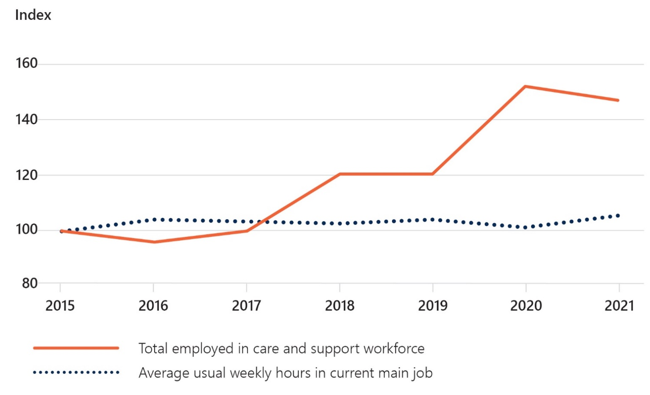The Australian Government is committed to ensuring that Australians have good, secure jobs. It recently made job security a central objective of the Fair Work Act, the minimum wage objective and the modern awards objective.
Job security is important to ensure that workers have consistent and predictable income week to week. Secure, predictable income is also important for managing general wellbeing.
Predictable income can be an issue for casual workers, who often do not have a guarantee of ongoing work or paid leave entitlements.80
Those most exposed to job insecurity are independent contractors (such as those on digital platforms), casual workers, and workers engaged on a labour-hire basis. While some workers choose these arrangements because it works best for their life circumstances or preferences, it becomes an issue if workers feel trapped in insecure work.
While casual employment can often benefit workers, for example by providing flexibility to manage work around studies or other activities, it can also be insecure work for people who need or would prefer regular, stable employment.
The National Skills Commission found that care and support workers are much more likely to be employed on a casual basis than other Australian workers. In February 2021, around 28 per cent of the care and support workforce were casual workers, compared with 19 per cent of the total Australian workforce.81
Security also involves consistency in hours, and sufficient notice of work. This is vital to enable people to plan their life, switch off from work, and have a good quality of life. In the NDIS, casual workers and part-time workers are highly concerned about not getting enough notice of shift or appointment times and hours changing from week to week.82 This problem is compounded by the fact that workers in aged, disability and veterans’ care and support are more than twice as likely to hold multiple jobs compared to the overall workforce.83
While the total number of workers in the care and support economy has been increasing over recent years, the average number of hours worked has barely changed. Ensuring that workers have secure jobs that provide sufficient hours will not only benefit workers; it will likely improve the productivity of the system by improving the utilisation of workers.

- While casual workers receive a 25 per cent loading in lieu of entitlements such as paid leave, the low pay for many jobs in the care and support economy would leave many casual workers relying on both the casual loading and regular work to sustain their livelihoods.Return to footnote 80 ↩
- NSC, Care Workforce Labour Market Study: Final Report. [17]Return to footnote 81 ↩
- BETA, NDIS workforce retention.Return to footnote 82 ↩
- NSC, Care Workforce Labour Market Study: Final Report. [17]Return to footnote 83 ↩
- NSC, Care Workforce Labour Market Study: Final Report. [158]Return to footnote 84 ↩
